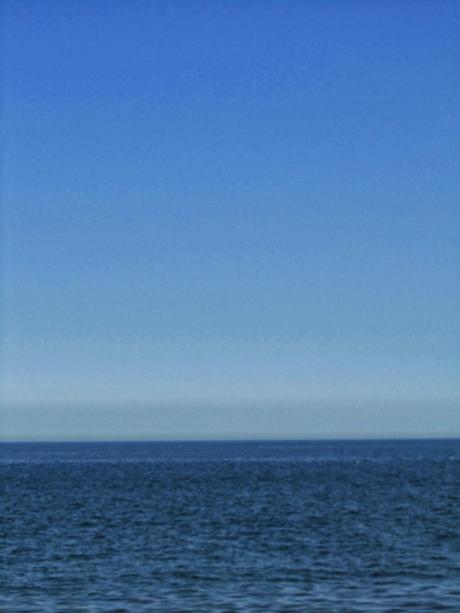 Kindness is more important than wisdom,
and the recognition of this is the
beginning of wisdom.
- Theodore Isaac Rubin
Kindness is more important than wisdom,
and the recognition of this is the
beginning of wisdom.
- Theodore Isaac Rubin
What does kindness have to do with mindfulness or even with writing? And just what exactly is mindfulness?
I'll answer that second question first. There are many definitions of mindfulness, but the one I like best comes from Kristin Neff: “we hold our experience in balanced awareness, rather than ignoring our pain or exaggerating it.” (You can read my review of Neff's book Self Compassion here.)
To this, I would also add that mindfulness is observing your experience, including thoughts and feelings, without judgement. The moment we add judgement into the mix, we lose mindfulness. This is incredibly important and yet it is what we are most likely to overlook.
By now, you can possibly see that kindness does have something to do with my definition of mindfulness. Kindness begins with ourselves, and it begins more specifically with not judging ourselves for our thoughts and feelings. It's that simple. Notice I didn't say it was easy; I said it was simple. For a start, even the word judgement can be misunderstood. "If I don't judge myself," you might be thinking, "I will go and do terrible things." But think about it: do we need to beat ourselves up to know that we'd rather not go out murdering? Do we need to tell ourselves we are bad and stupid to stop ourselves stealing or vandalising property? No. So we already know that we prefer not to do those things, and maybe we can trust that.
 In his book The Compassionate Mind, psychologist Paul Gilbert describes non self-judgement as: "giving up of self-attacking and condemning." We can still have values and preferences. He also makes the very important point that criticising and condemning create feelings inside us - and those feelings are often "anger, frustration or contempt." When we direct those towards ourselves they lead to depression and self-hatred, which do not help us to create. They also feel so bad that we invariably look around for someone else to blame - and so we hate the people around us too. Bryon Katie, who developed a process of mindful inquiry she calls The Work, said that in the days before she had a spontaneous awakening she followed the Biblical rule: Love thy neighbour as thyself. She hated herself and she hated everyone else too.
In his book The Compassionate Mind, psychologist Paul Gilbert describes non self-judgement as: "giving up of self-attacking and condemning." We can still have values and preferences. He also makes the very important point that criticising and condemning create feelings inside us - and those feelings are often "anger, frustration or contempt." When we direct those towards ourselves they lead to depression and self-hatred, which do not help us to create. They also feel so bad that we invariably look around for someone else to blame - and so we hate the people around us too. Bryon Katie, who developed a process of mindful inquiry she calls The Work, said that in the days before she had a spontaneous awakening she followed the Biblical rule: Love thy neighbour as thyself. She hated herself and she hated everyone else too.We humans truly are a strange species. Often, when we realise that we have been doing something that isn't in our own best interests (such as self-criticising) we either then defend ourselves for doing so: "If I don't I'll never change," or attack ourselves: "I'm such a stupid fool for doing that." Notice how they both amount to the same thing? It would be funny if the results weren't so terrible tragic: according to Paul Gilbert, over half of us will have some form of mental health problem at some time in our lives, with depression topping the list.
Okay, yes, I am aware I haven't answered the first part of that first question yet: what does kindness have to do with writing?
Writing can be a lonely profession. Apart from possibly script-writers, most of us work alone. I can't say this for sure, but I suspect that more so than most professions we face a daily barrage of doubts about our ability to produce work that has high quality and that will connect with other people. My husband flies planes. He doesn't go to work wondering if he'll be able to remember how to do it today, or whether the route he takes will be of any good. But that is exactly how many, many writers approach each working day. (It is more than likely also true of other creative careers, so if you are a different kind of artist, then just substitute that for writing as you read this.)
Of course, writers do need to be able to evaluate their own work, to rewrite, to make changes. It's common knowledge that in December and January agents and publishers are inundated with "novels" people have written during November's NaNoWriMo spurt. Not only are NaNo's 50,000 words far too short to count as a novel in most publisher's eyes, but these novels are entirely unedited. Any novel worth writing needs rewriting and rewriting again. And then some editing.

This type of criticism is not the same as attacking yourself - and ironically from my experience as a writer and as a creative writing tutor, I'd say that it's often the people who attack themselves most who can be least willing to look critically at their own work. They expect to feel shame, so try to blank that out by hoping for the best or for someone else's approval.
So, back to mindfulness. When you notice tension in your body, take some time to observe your thoughts. Notice how you feel and how you react when you believe those thoughts. Then remind yourself that these thoughts are simply beliefs - they are not the truth, no matter how much it might seem they are. They feel true because you believe them, not because they are. Say, for instance, you notice a thought, "I can't do it, my writing will be dross." Notice that you can't possibly know that in advance. It's just a belief, not reality - a story you have told yourself. We believe things like this about ourselves because we store away memories of times we didn't do as well as we'd have liked, or maybe when someone else criticised us, and we want to save ourselves from more humiliation. But in doing so, we humiliate ourselves right now. We dredge up past failures as proof of how useless we are - and then we try to force ourselves to change.
In an interview in Lit Reactor, psychotherapist and author Philip Kenney says that delving "into the unconscious to bring it into public is threatening." (I thoroughly recommend you read this article - it's great.) To ease the crippling self-critic, Kenney recommends psychotherapy (well he would, wouldn't he?) He also recommends meditation and says there are two kinds of meditation - mindfulness, and focusing on "the sense of presence or being, as the source of our existence." In my experience, this sense of presence reveals itself when we let go of the beliefs and stories that we think are who we are. Many people fear this presence, or think that if they let go of their stories they will have nothing to write about. My experience is that the opposite is true.
The quote at the beginning of this post is a "Daily Peace Quote" that came to me via Living Compassion. If you'd a moment to contemplate peace every day, then sign up too!

